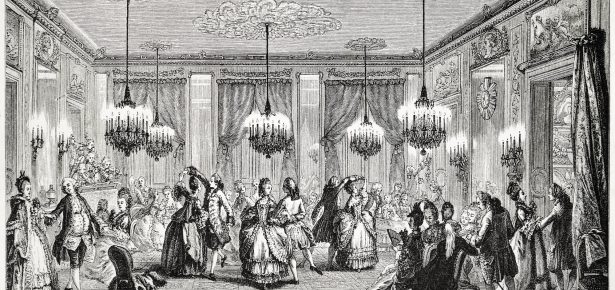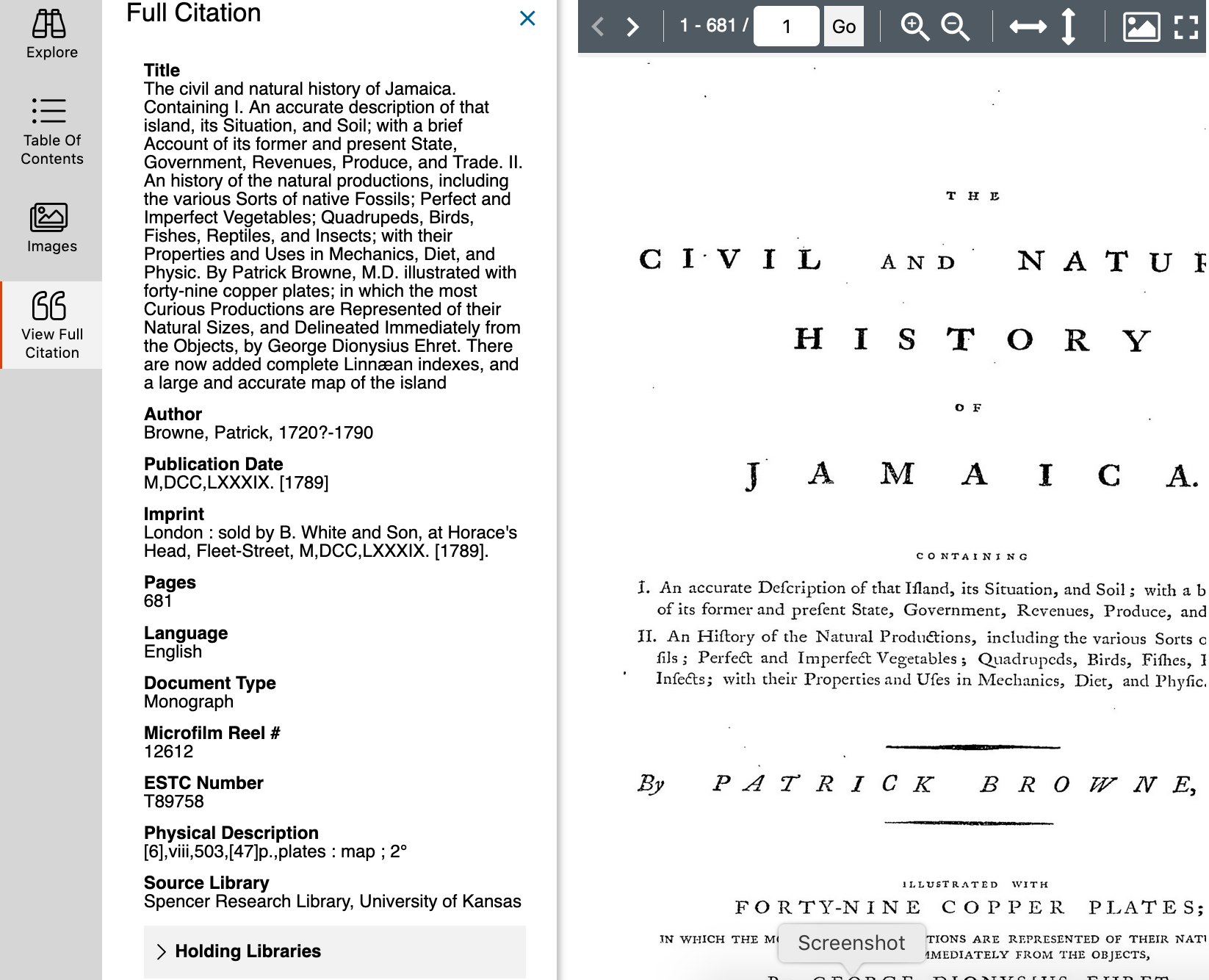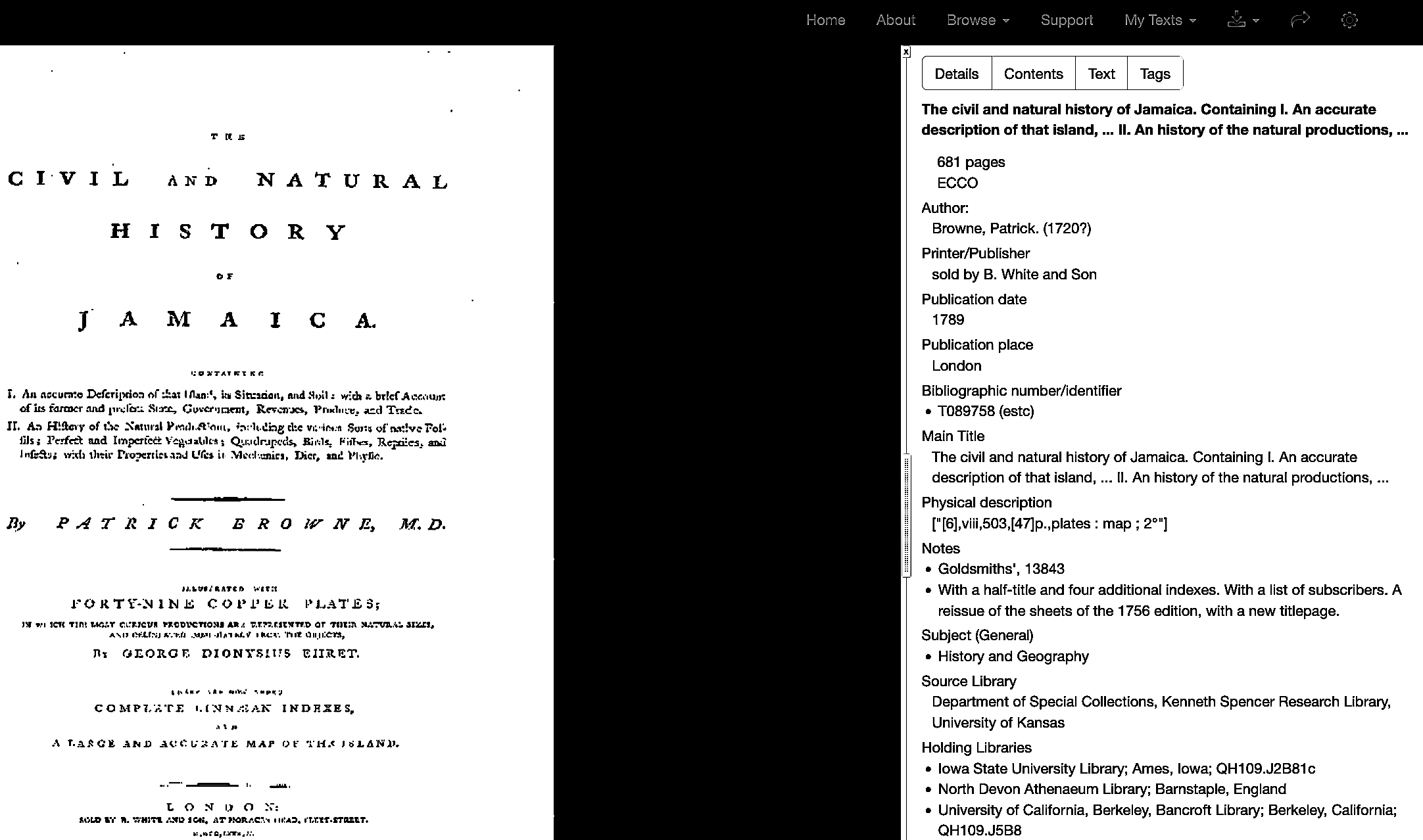
Reading the changing platforms of Eighteenth Century Collections Online.
In Old Books and Digital Publishing: Eighteenth Century Collections Online, I analysed the various interfaces to Gale’s Eighteenth Century Collections Online (ECCO), including Jisc’s Historical Texts as well as Gale’s various platforms. However, since the book was published both Gale and Jisc have modified these interfaces, so I wanted to reflect on some of the arguments I originally made about these platforms.[1]

A key strand of my argument was that the digital representation of bibliographic meta-data, such as format, variations in printing, if and how it was illustrated, errors, pagination (essentially, data ingested from the English Short Title Catalogue, see for example, above), was a significant factor in how we apprehended each book’s material presence. Because each different interface represented that record of their materiality differently, our perception of that presence, the ‘bookishness’ of these books, depended on which interface we were using. I argued that these differences reflected some wider changes. First, the direction of publishers such as Gale and ProQuest has been towards packaging their digital products to enable cross-collection access and searching; however, given different collections were built on different standards of metadata, it became very difficult to represent metadata language in a consistent way.
Second, the influence of computational analysis or text-mining was reflected in Gale’s new platforms for ECCO from around 2014. As I argued: ‘the increased focus on the text of the books in ECCO risks bypassing the bookishness of books, those eccentricities introduced by the handmade processes of book production and transmission’ (92). Originally, such lack of material evidence was particularly felt in the beta release of the Gale Digital Scholar Lab platform where the results lists and the book viewer included no bibliographic information at all. However, between December 2021 and March 2022 Gale updated that interface. The book-viewer interface is now based on the same architecture as the Gale Primary Sources interface and bibliographic metadata is now available in the same way as the standard GPS interface.


As you can see, bibliographic metadata is still rather awkwardly presented across two different viewing options (‘Explore’ and ‘Full Citation’). I won’t rehearse the arguments between bibliography and text-mining here, but it does seem a shame to make certain ways of reading less accessible on Gale’s now standardised platform.

By comparison, Historical Texts, Jisc’s platform for accessing ECCO (above), presents bibliographic data in a slightly more user-friendly way in one whole pane. However, that metadata is not consistent across all collections accessed via the platform, and as I discussed in the book, the data was still rather attenuated. However as of July, 2021, Jisc ingested more bibliographic data from the ESTC, naming the source library and listing holding libraries for items in ECCO.[2]
Setting aside my point about the bookishness of books, one
of the other central points in Old Books and Digital Publishing was that
digital archives are far from static entities. For the moment, the collection
itself remains stable, but how we interface with those old books – how we
apprehend their material presence – is
subject to change. At the end of my book, I said that ‘ECCO is still changing’
(104). So, indeed, it turns out. But the rapidity with which commercial interfaces
are updated underline how essential it is that we learn how to read these
platforms and trace their histories.
[1] These arguments were also made in an earlier blog post ‘Paratexts and metadata: the interfaces of Eighteenth-Century Collections Online’ (July, 2020).
[2] Jisc Historical Texts – Development Roadmap (accessed 21/02/2022).
Latest Comments
Have your say!